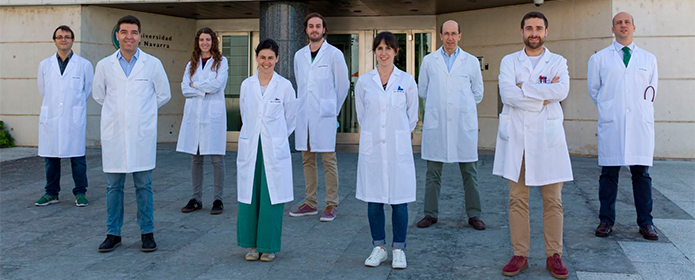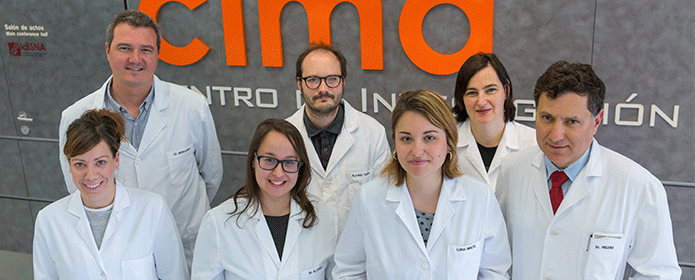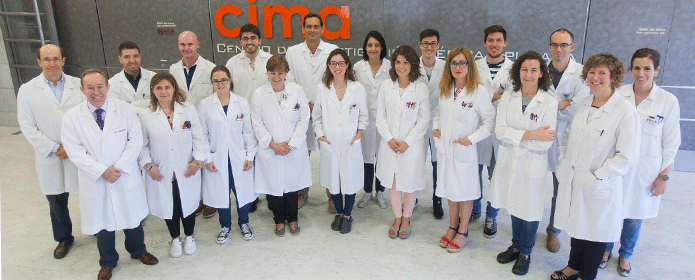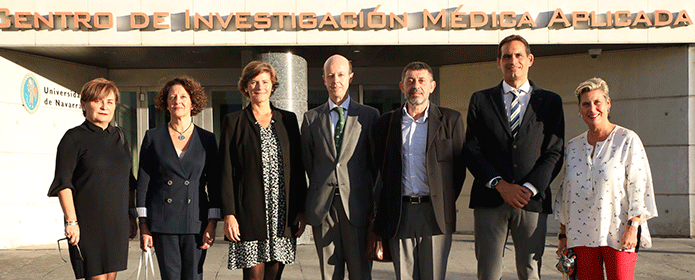Cima participates in the research of a drug in clinical phase that neutralizes the virus causing COVID-19.
Scientists from the Regenerative Medicine Program and the laboratory Advanced Genomics Program have collaborated in the identification of the new therapeutic target for the drug.
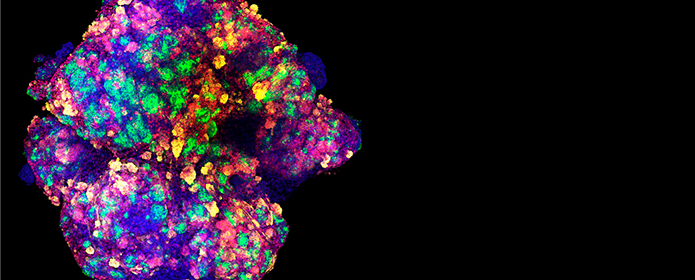
The prestigious scientific journal Cell has recently published an international research that demonstrates the efficacy of an early-stage drug in blocking the action of SARS-CoV-2, the virus that causes the disease COVID-19. The authors of work discovered this by analyzing how this new virus acts in human kidney cells. For this purpose, they have employee small replicas of these organs generated with stem cells and bioengineering techniques called organoids.
Researchers from the Regenerative Medicine Program and the laboratory Advanced Genomics Program of the Cima have collaborated in this multicenter work led by the high school de Bioingeniería de Cataluña (IBEC) (Spain), the high school Karolinska (Sweden) and the high school Life Sciences at the University of British Columbia (Canada).
Characterization of kidney organoids.A step prior to experimentation with the drug is the knowledge of the interaction between the virus and the human cell. To speed up the process at research and bring potential results to the clinic as soon as possible, the researchers have employee mini-kidneys or kidney organoids infected with SARS-CoV-2. By characterizing these human kidney replicas, "we have been able to identify kidney tissue cells that express the ACE2 enzyme, a receptor used by the virus to enter human cells," says Dr. Felipe Prosper, director of the Regenerative Medicine Program at Cima and a participant in the research.
As explained by article, COVID-19 disease is caused by the interaction between this enzyme and the SARS-CoV-2 virus. With this knowledge, the researchers have tested a drug already on the market but not known to be used to tackle this new virus (called APN01). These promising results have triggered a clinical essay with 200 patients with COVID-19.
Thanks to the experience of laboratory of Advanced Genomics in single-cell genomic analysis, "we have been able to study in detail the different populations of cells that make up kidney organoids and identify in which of them the ACE2 receptor is present. This research demonstrates how these advanced cellular and molecular analysis techniques allow us to identify mechanisms involved in the normal functioning of cells. In turn, it demonstrates how innovation in the field of cell therapy and bioengineering are essential for cutting-edge medicine," adds Dr. Prosper.

